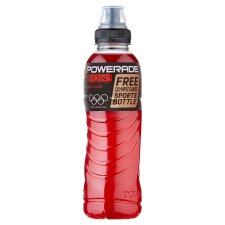The UK Food Standards Agency (FSA) released a notice yesterday stating that it was removing Burger King from its list of caterers and restaurants whose products are free from the colours.
The FSA said this was due to Burger King’s reintroduction of the colours in a “small number of restaurants”, since it began a six month trial of the Coca-Cola Freestyle dispensing system, due to end in December 2012.
The ‘Southampton Six’ food colours hit the headlines several years ago when a 2007 Southampton University study by McCann et al. (FSA-funded and published in The Lancet) linked their use in combination with preservative sodium benzoate to hyperactivity in children.
The colours are Sunset Yellow (E110), Quinoline Yellow (E104), Carmoisine (E122), Allura Red (E129) Tartrazine (E102) and Ponceau 4R (E124).
Retail product use persists
The FSA subsequently recommended their EU phase-out by 2009, citing UK government agreement with its stance. The Action on Additives Campaign called the ‘voluntary’ phase-out a “voluntary ban”.
However, the European Food Safety Authority (EFSA) said in March 2008 that although the Southampton study provided limited evidence for a hyperactivity link its results were not statistically significant, and did not provide a good basis upon which to lower Acceptable Daily Intake (ADI) Levels.
But the European Commission subsequently asked EFSA to prioritise a safety review, which led to the later lowering ADIs for E124, E104 and E110 in November 2009, but only due to different ill health effects suggested by rodent studies.
Coca-Cola Freestyle (pictured) is a touchscreen soda fountain that allows users to choose from over 100 flavour combinations; the FSA said that due to “technical reasons”, Coca-Cola was unable to remove all of the colours linked with possible hyperactivity from the system prior to the UK trial.
Asked which of the colours were present and in what products, a Coca-Cola Great Britain spokeswoman told BeverageDaily.com: “The Southampton colours used are Sunset Yellow, Tartrazine and Allura Red, and are present across a range of brand and flavour combinations.”
“We phased out the majority of Southampton colours that were in our drinks in 2011. However we have been unable to find a viable alternative for Powerade Cherry [pictured below] but we continue to look for alternative colours for this product that meet our stringent requirements.”*

She added that the Burger King trial using Coca-Cola Freestyle began last month, in 16 Burger King restaurants in Greater London, and that the three colours were not used in retail products.
It was too early to say whether Coca-Cola Freestyle would be launched permanently, the spokeswoman said, adding: “In response to changing consumer preferences, we have been moving towards the use of non-artificial colours where viable alternatives can be found.
“This will be the case if the Coca-Cola Freestyle trial is rolled-out nationwide in future,” she said.
Limited, small-scale trial
The spokeswoman explained that the Burger King project was a limited, small scale trial based on ingredient combinations used successfully in other markets.
“The presence of a Southampton Colour in the Coca-Cola Freestyle drinks involved in this trial is well below the legally required ADI (Acceptable Daily Intake),” she said.
“To put this into context, an individual would need to consume multiple litres of product in one day to exceed their ADI for a Southampton Colour.”
Both the Coca-Cola Company and Burger King were committed to helping people make informed choices regarding their products, the spokeswoman said.
She added that the firms had worked closely together to ensure that all nutritional and ingredient information relating to Coca-Cola Freestyle was available in all 16 participating restaurants.
All Coca-Cola beverages and the ingredients in them were completely safe and complied with all governmental requirements in over 200 countries where they were sold, the spokeswoman said.
BeverageDaily.com contacted Burger King for a comment, but the company referred all press inquiries to Coca-Cola Great Britain.
*July 13: A Coca-Cola Great Britain spokeswoman said: "We can confirm we have found a viable alternative for Powerade Cherry and will launch a Southampton Colour free version before the end of the year."
